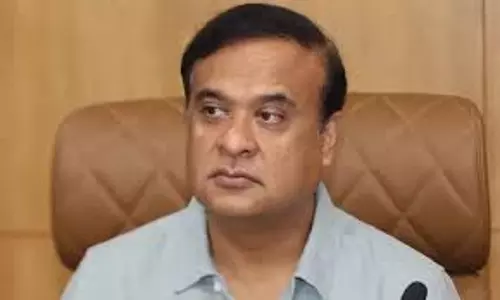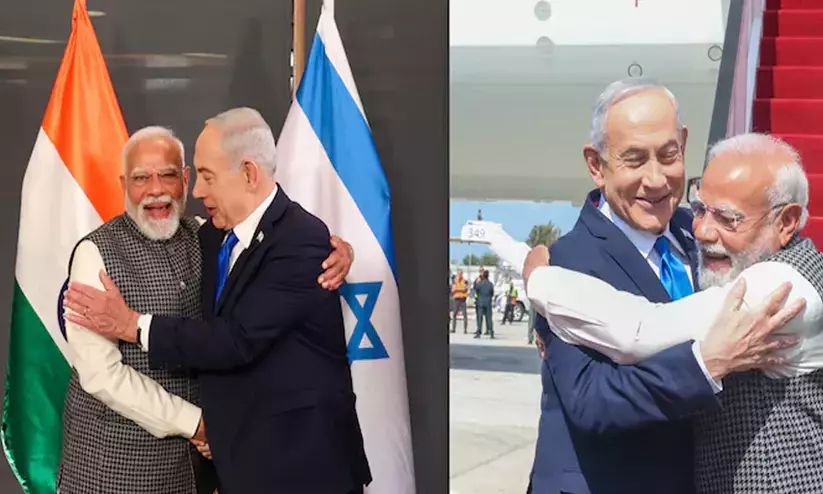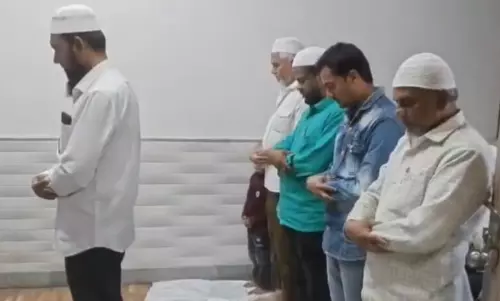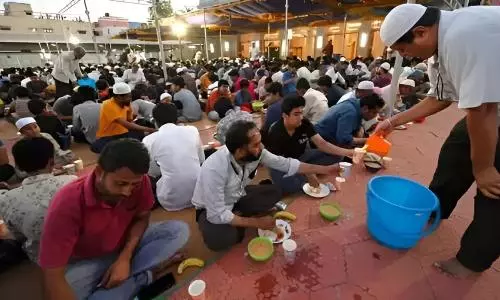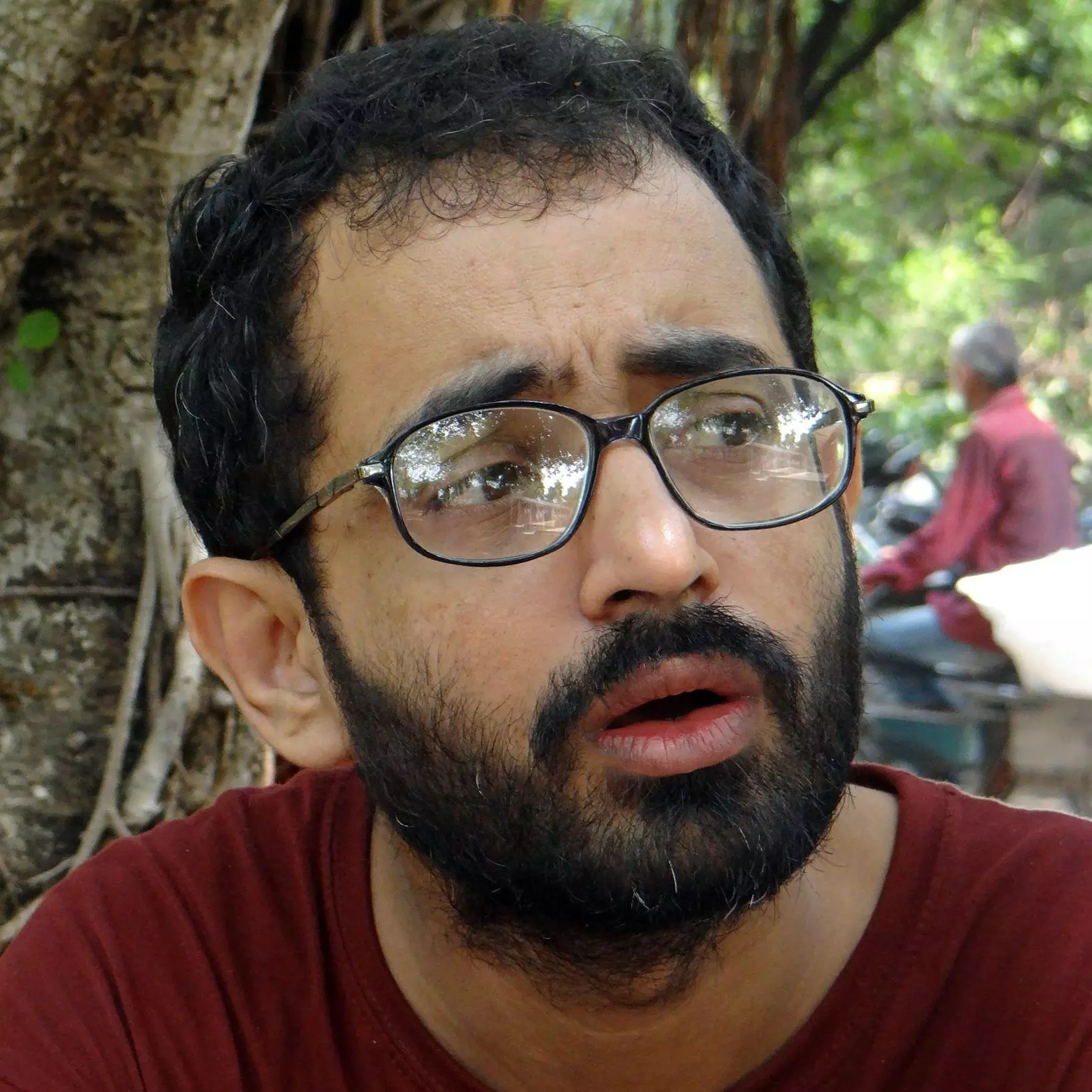
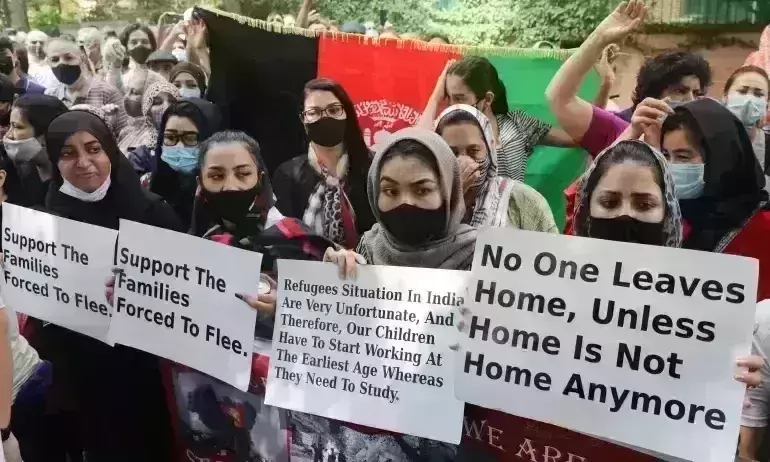
Representative Image
Why attempts to link Taliban to Indian Muslims are acts of Islamophobia
text_fieldsSoon after the second coming of the Taliban to power in Afghanistan, several mischievous attempts have been made in the press and social media to demonise the image of the Indian Muslims as being Talibani "supporters".
The Hindu right-wing forces are at the forefront to spread lies and hatred against the Muslim minority. Indian Muslims are abused as "pro-Talibani". Anti-Muslim pictures, cartoons and comments are floating unchecked on social media.
Keeping an eye on the upcoming Uttar Pradesh Assembly elections, the Hindu right-wing forces are polarising voters. The opinions of Muslims are deliberately being distorted, and later they are being used as an excuse to file cases against them.
A news item from Uttar Pradesh has come that an FIR has been lodged against famous Urdu poet Munawwar Rana for allegedly comparing Valmiki and the Taliban. He has been accused of hurting the religious feelings of Hindus. A post on Twitter even calls him a "hidden terrorist".
In another post, Bilkis Bano – the 82-year old woman who became famous for her stance against CAA and was later called 'Dabang Dadi' from Shaheen Bagh, anti-CAA activist Safoora Zargar other Muslim activists and journalists, have been accused of not speaking against "Taliban terror".
All India Muslim Personal Law Board, too, has been dragged into the chaos. Allegations have been made that one of its members, well-known Deoband Islamic scholar and preacher Sajjad Nomani has "praised" the Taliban. The Board was quick to refute the charges by issuing an official statement that "All India Muslim Personal Law Board has neither expressed any view nor given any statement on Taliban and current political situation of Afghanistan. Opinion of some Board members has been portrayed as Board's stand by a few media channels, and the wrong thing is being attributed to the Board. These practices are against the spirit of journalism".
Another Twitter post has attempted to draw a connection between the nineteenth-century old Deoband seminary in Saharanpur, Uttar Pradesh, and the Taliban. The post reads, "Just 160 kilometres from Noida exists the seminary from which Taliban derived ideological inspiration. Maulana Mufti Arshad Farooqi, the Mufti of Darul-Uloom Deoband, Deoband has praised Taliban terror in a recent video".
This was not an opinion of an individual against Deoband seminary. The press reports that the Uttar Pradesh Government is now setting up the Anti-Terrorism Squad (ATS) in Deoband as it considers the location as having "strategic importance".
The deep-rooted prejudice against Deoband seminary is deliberately oblivious that it is one of the most prominent educational and religious institutions that draw students from all across the world. Moreover, the Ulama or the religious scholars of Deoband have a revolutionary legacy of being anti-colonial and a grand champion of Hindu-Muslim unity and composite nationalism.
Worse still, even an "old" and "staged" video is widely circulated, showing Taliban "shooting people on the streets of Afghanistan". Several Muslims are getting arrested. For example, the Assam police have arrested 14 Muslims for allegedly supporting the Taliban in their social media posts. Shafiqur Rehman Barq, Samajwadi Party Member of Parliament from Sambhal, has been charged with sedition for allegedly equating Taliban with Indian freedom fighters. Predictably, the case against Barq was filed by a Hindu-right-wing leader.
These attempts to tarnish the image of Muslims are simply acts of Islamophobia. The press does not want to tell that Indian Muslims and the Taliban who profess the same religion do not naturally become each other's supporters.
In the whole discourse, it is often forgotten that the opponents of the Taliban in Afghanistan are not Hindus but Muslims. It is true that the countries where Muslims are a majority are as complex and divided on caste, class, gender and region as the countries where they are a minority. History is witness to the bitter fact that Muslim countries had fought against other Muslim countries. Their common religion does not address other contradictions.
However, the Islamophobic discourse does not recognise internal conflict and puts all Muslims under the same club. All the Muslim societies are demonised as "the inversion" of the order. They are presented as a "threat" to the rest of the world. Religion, not political economy or colonialism or imperialism, is used as the only category to explain all complexities of the Muslim world.
In 1997 Runnymede Report of Britain defines Islamophobia as "dread, hatred, and hostility towards Islam and Muslims perpetuated by a series of closed views that imply and attribute negative and derogatory stereotypes and beliefs to Muslims", according to John L Esposito (The Challenge of Pluralism in the 21st Century, Oxford University Press, New York, 2011, pp. xxii-xxiii). In other words, fear, hatred and hostility against Muslims, based on prejudice and unfounded reason, are examples of Islamophobia.
But what sustains Islamophobia? Why does it pervade far and wide? Professor Amir Ali of JNU, in his latest book Brexit and Liberal Democracy: Populism, Sovereignty, and the Nation-State (2021), has identified at least five issues that keep reinforcing Islamophobia. They are Orientalism, discrediting multiculturalism, Islam considered incompatible with liberal democracy, the post-War on Terror discourse, and the negative role of the media. They seem to be very much relevant to the current anti-Muslim hatred too.
First, Orientalist construction of knowledge and distortion of reality in the Muslim world has created a stereotypical image of Muslims. The Muslim world is demonised as being the opposite of the West. In his canonical text Orientalism (1978), Edward Said, professor of English and Comparative Literature at Columbia University, brilliantly argues that orientalists, scholars writing about the Orient, have projected the East as the other of West. For example, the West is called "rational", "liberal", "scientific" and "accurate", while the East is dismissed as "irrational", "primitive", "savage", "child", "backwards" and "lustful".
Take the case of the Taliban. They are called "backwards" and "savage" for carrying beards and taking to violence. Yet, no one asks that they do carry not only long beards but also sophisticated guns. Islamophobic discourse is least interested in asking questions like 'who has manufactured these guns', 'who has supplied these arms to the Taliban', 'Were not Taliban hailed for long as "freedom fighters" against the evils of "communism"', What have the Western powers done in Afghanistan for the last twenty years? 'Who is to blame for the destruction of Afghanistan?' 'What are the achievements and failures of the War on Terror?'
Second, the discrediting of multiculturalism has created a vacuum that gets filled by reactionary ideologies like Islamophobia. In the Indian context, the same thing is seen in the context of secularism. The rise of Hindu right-wing forces has made a constitutional ideal like secularism a "dirty" word. The opponents of the Hindu right-wing are demonised as not being genuine secularists as they appease Muslims and act against the interests of the majority Hindus.
The Taliban, too, are being presented as religious fanatics and not genuinely being secular. There is a great degree of truth that the Taliban have used and misused Islam for their political goals. They have brought several hardships on those who disagree with them. But the so-called upholders of true secularism take a double standard when religion is used for a political gain elsewhere. The Hindu right-wing forces attack the Taliban for blowing up the sixth-century old Lord Buddha's statues in Bamiyan. At the same time, they justify the demolition of the sixteenth-century old Babri Masjid in Ayodhya.
Third, Islam is accused of being incompatible with liberal democracy. The propaganda goes like this: Sharia laws run Muslim countries, and the powerful presence of religion does not allow space for secularism. In other words, Islam does not allow the separation of the church and the state.
Such a prejudiced view against Islam is propagated by several western scholars that are often copied by the communal forces in India. Donald Smith, who taught at the Department of Politics at the University of Pennsylvania, has accused Islam of being not much conducive to the idea of secularism: "All religions prescribe rituals, ceremonies and festivals that are important to the social life of their peoples but some go beyond this to regulate virtually every aspect of society, as it the caste system or Muslim law" ('India as a Secular State' in Rajeev Bhargava. ed., Secularism and its Critics, p. 186).
Influential orientalist scholar Bernard Lewis (The Crisis of Islam: Holy War and Unholy Terror), too, has created a stereotypical image of Islam and the Muslim society and called the idea of secularism "alien" to Islam: "The very notion of something separate or even separable from religious authority, expressed in Christian languages by terms such as lay, temporal, or secular, is alien to Islamic thought and practice" (p. 8).
However, Lewis has shown no interest in analysing how the major Western powers, the so-called "exporters of democracy", have been toppling governments, implanting their puppets in the Muslim counties and killing more people in the counter-insurgency operation.
Fourth, the post-War on Terror discourse suddenly intensified the hatred against Muslims. 'All terrorists are Muslims' – became slogans. Despite invading several Muslim societies in the name of the war on terror, the western powers did not arrive at a consensual definition of terrorism.
If terrorism is a reality, are only Muslims as religious groups resorting to creating terror and inflicting death and damage? What about the non-Muslims who have been neck-deep in violence? Are they not also terrorists? Can it be denied that counter-terrorism measures, on several occasions, caused a more significant loss of life and greater damage than the so-called terrorist activity might have caused? Who manufactures arms and weapons, and who earns huge profit by their proliferation? These questions have not much been brought to the public sphere by the Islamophobic forces.
Fifth, the discourse set by media and social media feeds Islamophobia. The unverified posts floating on social media, the sensational journalism of tabloid press and the howling cries of anchors of the news channels have prepared the ground of anti-Muslim hatred. It is no surprise that an old video is now being circulated and linked to the Taliban terror.
As it is evident now, Islamophobia is a vital tool to understand the anti-Muslim narratives prevalent in India and elsewhere. Some people deny Islamophobia and call it a tool in the hands of the elite Muslims to hush any criticism of the "ills" of Muslims and the Muslim society. Nothing can be farther off the truth than calling Islamophobia a myth.
Indeed, Islamophobia is deep-rooted and durable.
However, it should also be kept in mind that not all criticisms against Muslims and Muslim society are to be dismissed as Islamophobic. The legitimate criticism for reforms and achieving equality should be encouraged. We should not forget that the social and economic conditions of a Muslim worker and a Muslim landlord or owner of the factories are not the same. The Muslim women, similarly, suffer at the hands of Muslim men, and upper-caste Muslims discriminate against lower caste Muslims. For any society to survive, it is important to keep the wheels of reforms and critique on. They should never be shut up in the garb of Islamophobia.
(Abhay Kumar is a Delhi-based independent journalist and writer. Besides, he teaches Political Science and Urdu. His broad areas of interest include Minority Rights and Social Justice. He can be contacted at debatingissues@gmail.com.)




